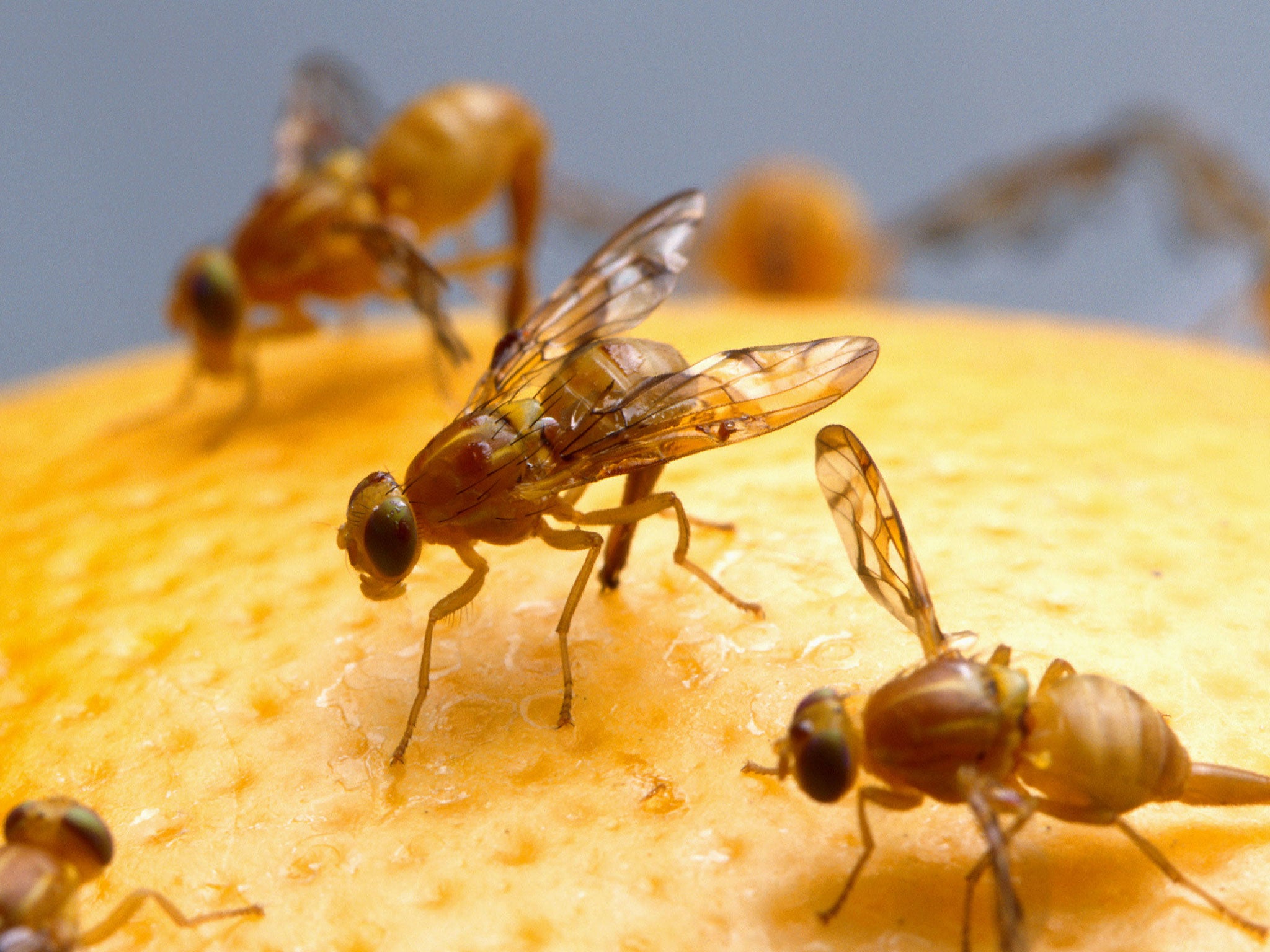Flies experience emotions like fear, and might offer insight into how the brain makes feelings
It's impossible to tell whether the flies actually have feelings — but their emotions seem to work in a similar way to ours, researchers find

Your support helps us to tell the story
From reproductive rights to climate change to Big Tech, The Independent is on the ground when the story is developing. Whether it's investigating the financials of Elon Musk's pro-Trump PAC or producing our latest documentary, 'The A Word', which shines a light on the American women fighting for reproductive rights, we know how important it is to parse out the facts from the messaging.
At such a critical moment in US history, we need reporters on the ground. Your donation allows us to keep sending journalists to speak to both sides of the story.
The Independent is trusted by Americans across the entire political spectrum. And unlike many other quality news outlets, we choose not to lock Americans out of our reporting and analysis with paywalls. We believe quality journalism should be available to everyone, paid for by those who can afford it.
Your support makes all the difference.Insects and other animals might be able to feel fear similar to the way humans do, say scientists, after a study that could one day teach us about our own emotions.
To find out whether flies are able to feel emotion, researchers broke down feelings into their smallest blocks, and then tried to find ways of studying whether the flies were exhibiting those behaviours. Those blocks are called “primitives” — the feeling of fear after a gunshot, for instance, was referred to as “valence”, and if it lasted for a longer time that would be a primitive called “persistence”.
To see whether flies demonstrated their own versions of those primitives, researchers passed a paddle over them so that it quickly went dark. The flies were then watched using a special piece of software that studied their movements.
The research found that flies seemed to exhibit many of those same primitives. If flies were gathered around food when the paddle passed over, for instance, they would leave and run around for a few seconds — exhibiting “persistence” as well as context generalisation, where fear is true no matter what is going on elsewhere.
"For us, that's a big step beyond just casually intuiting that a fly fleeing a visual threat must be 'afraid,' based on our anthropomorphic assumptions,” said David Anderson, who ran the study. “It suggests that the flies' response to the threat is richer and more complicated than a robotic-like avoidance reflex."
Studying the emotions of animals is difficult because researchers must be sure that they’re not anthropomorphising the things that they study. Flies might look scared when a hand approaches them, for instance — but scientists have to be careful not to assume that they scare the same way that we do.
"There are two difficulties with taking your own experiences and then saying that maybe these are happening in a fly,” said William T Gibson, one of the authors of the paper.
“First, a fly's brain is very different from yours, and second, a fly's evolutionary history is so different from yours that even if you could prove beyond any doubt that flies have emotions, those emotions probably wouldn't be the same ones that you have.
“For these reasons, in our study, we wanted to take an objective approach."
As such, the researchers are careful to point out that the research only shows that flies experience apparent emotions that have a similar function. It doesn’t mean that flies necessary have feelings or that they are anything like our own.
"Our work can get at questions about mechanism and questions about the functional properties of emotion states, but we cannot get at the question of whether or not flies have feelings," Gibson says.
The researchers studied flies because they have such a simple neurological system, making them easier to understand.
Eventually, the scientists hope that they can do similar studies but use genetically-based techniques and brain activity imaging to further monitoring what is happening inside the fruit flies. In doing so, they hope to be able to find out which specific parts of the fruit fly brain are responsible for each primitive — and then to see whether the same is true in higher organisms, like mice or humans.
The study was published in the journal Current Biology, under the name "Behavioral Responses to a Repetitive Stimulus Express a Persistent State of Defensive Arousal in Drosophila," building on research carried out at the California Institute of Technology.
Join our commenting forum
Join thought-provoking conversations, follow other Independent readers and see their replies
Comments